Tajikistan Development Forum was held in Dushanbe
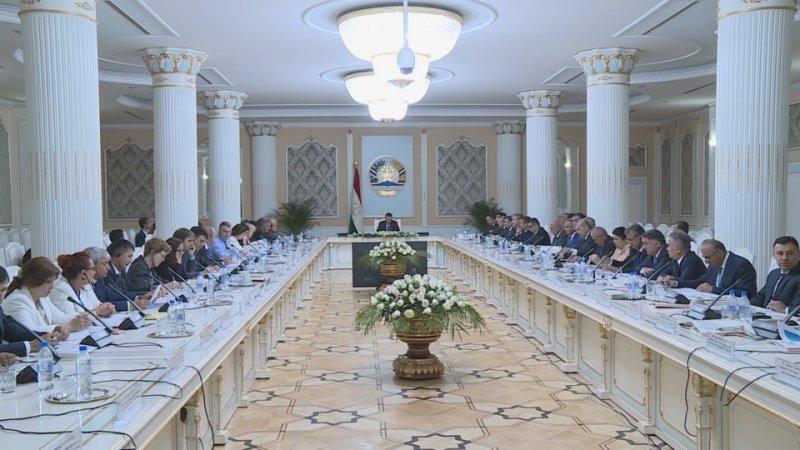
DUSHANBE, 03.07.2018 /NIAT «Khovar»/. Tajikistan Development Forum was held today, July 3 after the meeting of the National Development Council under the President of the Republic of Tajikistan.
According to NIAT “Khovar” correspondent, the Forum, which was chaired by the Prime Minister of the country Qohir Rasulzoda, was attended by senior representatives of the Government of the Republic of Tajikistan, international organizations and diplomatic corps, accredited in Tajikistan.
The Forum was held in order to discuss achievements of socio-economic development over 2017-2018, existing problems and prospects for future years within the framework of the National Development Strategy of the Republic of Tajikistan for the period up to 2030, the Medium-Term Program and the Sustainable Development Goals.
In this context, the ministries and agencies jointly with development partners endorsed the achievements of the Government of the Republic of Tajikistan on development initiatives to ensure reforms in the field of entrepreneurship and investment development and the contribution of the private sector, the effectiveness of the country’s industry — the basis of transition from the agrarian-industrial model to the industrial-agrarian, human potential development, ensuring food security, effective use of financial resources, disaster risk management and climate change, as well as offered specific conclusions and suggestions for the future cooperation.
It was noted that for the effective implementation of the National Development Strategy of the Republic of Tajikistan for the period up to 2030, the three medium-term periods are planned, the first period of which is the transition of country’s economy from the agrarian-industrial model to the industrial-agrarian.
Therefore, the transition to a new model of economic development, based on investments in development of imports and exports, is considered as the base for this phase. This model relies on effective institutional mechanisms that allow improving reforms in preparing modern specialists that meet the needs of the labor market and attracting investments to the real sector of economy and infrastructure.
This model also should be an accelerator of rapid industrial, agricultural and financial growth, and promote creation of new jobs with a high degree of production, reach a new export market, and reduce the country’s dependence on remittances.
According to Forum participants, the implementation of this model should be based on the balance of sustainable development sectors — economic, social and ecological sectors and promote the development of socio-economic potential of men and women.











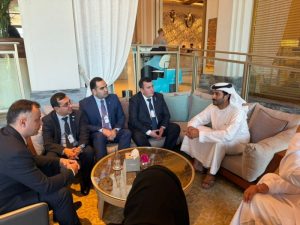 Tajikistan and the United Arab Emirates plan to develop green energy
Tajikistan and the United Arab Emirates plan to develop green energy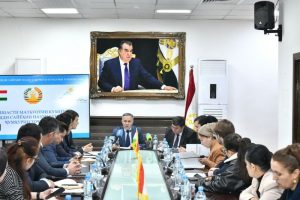 Growth in the Number of Tourism Service Providers in Tajikistan
Growth in the Number of Tourism Service Providers in Tajikistan Tajikistan, Abu Dhabi Fund Sign $100 Million Deal for Rogun Hydropower Plant
Tajikistan, Abu Dhabi Fund Sign $100 Million Deal for Rogun Hydropower Plant Norak Hydropower Plant Rehabilitation Phase One to Be Completed in December 2026
Norak Hydropower Plant Rehabilitation Phase One to Be Completed in December 2026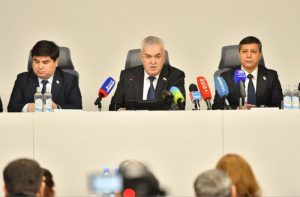 Tajikistan Begins Preparations for Transition to 12-Year Education System
Tajikistan Begins Preparations for Transition to 12-Year Education System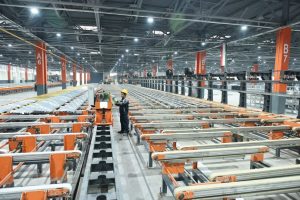 Industrial Output in Tajikistan Reaches 66.7 Billion Somoni in 2025
Industrial Output in Tajikistan Reaches 66.7 Billion Somoni in 2025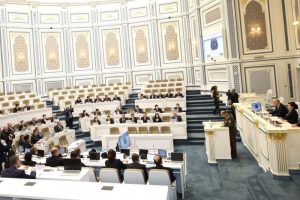 Tajikistan Approves Protocol to Agreement on Forces and Means of CSTO Collective Security System
Tajikistan Approves Protocol to Agreement on Forces and Means of CSTO Collective Security System














